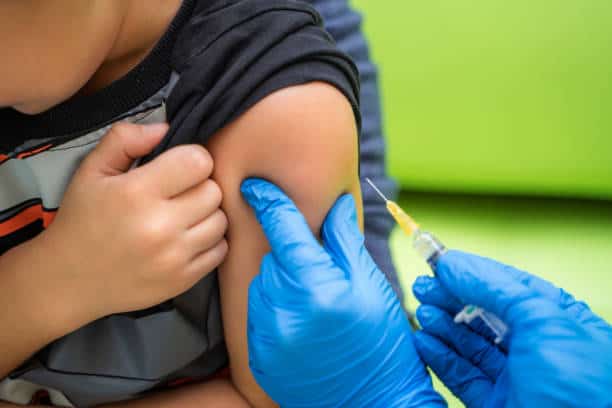
Health officials are raising alarms as cases of whooping cough have surged by more than 40% in New Jersey, Pennsylvania, and New York over the past year.
This highly contagious respiratory infection – also known as pertussis – can cause severe coughing fits, and left untreated, can result in severe illness or even death, particularly in babies, older adults and those with weak immune systems. There has also been a significant increase nationwide.
Officials are also seeing a rise in whooping cough in Camden County. In response, Virtua Health, South Jersey’s largest health system, is playing a role in containing the outbreak.
“When we detect a pertussis infection, we treat the patient and evaluate any Virtua staff members who have had significant exposure,” explained Dr. Martin Topiel, Chief Infection Officer at Virtua. “We also coordinate with county health departments regarding any pertussis cases we identify, so the health departments can follow up with the patients, their families and others they’ve come in close contact with.”
Whooping cough is typically treated with antibiotics, and preventive treatment is recommended for those who have been significantly exposed to it. Babies and young children are particularly vulnerable; they typically have the highest incidence of the disease if they are not vaccinated as newborns.
Topiel strongly advises that residents ensure they are up to date on vaccinations, including pertussis.
“In addition, it’s important to follow routine hygiene measures, such as washing hands, covering coughs and sneezes and staying home when you’re sick,” he added.
Virtua has been coordinating with local health departments to monitor and control the whooping cough spread. That includes sharing information about patients to help health departments trace contacts and manage the disease more effectively.
As Camden County continues to address the public health challenge, the combined efforts of health-care providers, local authorities and residents will be crucial in managing and eventually reducing the impact of whooping cough in the region, according to Topiel.
“In New Jersey, we’ve seen a 40% increase in pertussis cases as of late July compared to the same period last year,” he pointed out. “This trend is even more pronounced in Pennsylvania and New York. Nationally, the Centers for Disease Control and Prevention (CDC) estimates that pertussis cases have tripled, marking a return to pre-pandemic levels.”
The CDC reports that the U.S. is approaching the annual pertussis case count seen in 2019, typically more than 10,000 cases. But Topiel noted that during COVID, health measures such as masking and remote learning likely contributed to a temporary decline in cases. But with those measures no longer widespread, pertussis is making a strong comeback.
“Infants under the age of 1 are at the greatest risk because their immune systems are still developing,” Topiel emphasized. “This age group has the highest reported rate of pertussis, which is why it’s crucial for parents to ensure their children are vaccinated on schedule.”
Among challenges in combating pertussis is that some cases go unrecognized and unreported.
“At Virtua, we’re seeing an increase in pertussis cases in our emergency rooms and urgent- care centers that don’t always present with the typical whooping sound,” Topiel reported. “These patients often exhibit symptoms of a routine respiratory infection, making diagnosis more challenging.”
Despite the concerning rise in whooping cough cases, there is a silver lining: Vaccines remain an effective tool in preventing or reducing the severity of symptoms. The CDC recommends the pertussis vaccine for everyone, including pregnant women, as immunity from the vaccine diminishes over time.
The pertussis vaccine is administered in combination with diphtheria and tetanus vaccines, with different formulations available for young children (DTaP) and for older children and adults (Tdap). Babies can begin receiving the vaccine at just six weeks old, with a series of shots typically provided by their pediatrician. Adults are advised to receive a booster shot every 10 years.
Besides a cough, early symptoms of pertussis resemble those of the common cold, including a runny or stuffy nose and low-grade fever. But within a week or two, those symptoms can escalate to severe coughing fits, known as paroxysms, that can make breathing difficult and cause the distinctive “whoop” sound as the person gasps for air. In some cases, the violent coughing can lead to complications such as rib fractures.
Experts believe the increase in whooping cough may be attributed to several factors, including improved testing methodologies, increased reporting of diseases by health-care providers and a decline in vaccinations or booster shots during COVID.
Historically, before the introduction of the pertussis vaccine in the 1940s, whooping cough was one of the most common childhood diseases and a leading cause of child mortality in the U.S., with more than 200,000 annual cases.
To schedule a vaccination appointment, contact your medical practice directly.









